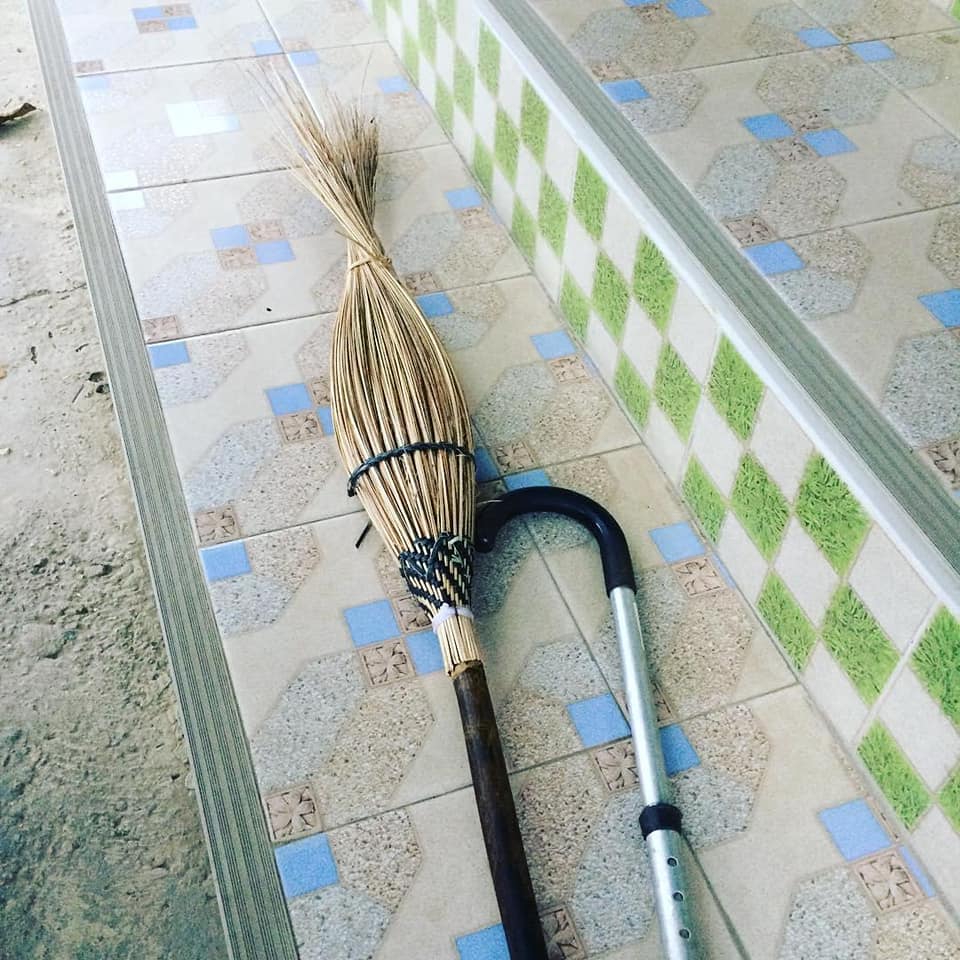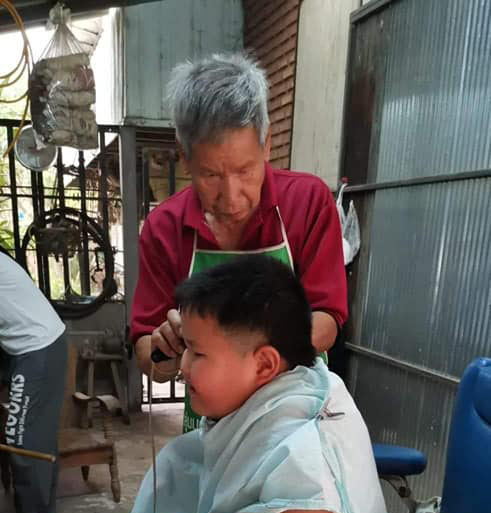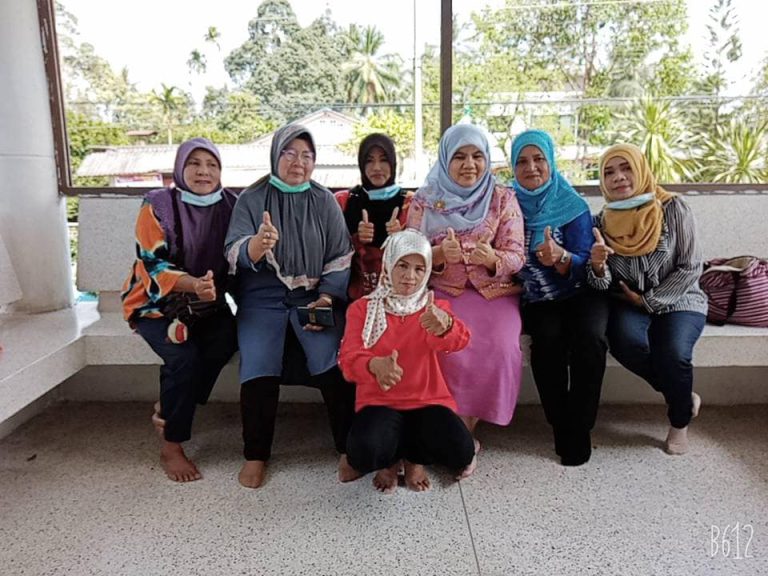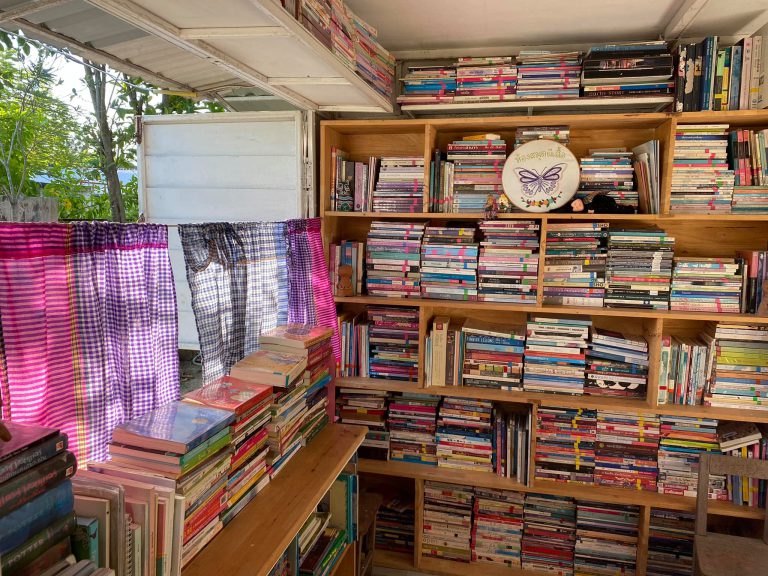Story: Jenjia Locha
Ouynantian (whose real name is Buntian Locha) is a barber in a small village in the North of Thailand. A small room next to his house serves as his salon, furnished with hairdressing chairs, mirrors and 2-3 hair clippers. It is a humble place, with none too many tools.
Elderly men in the community tend to go to Ouynan’s. He often has to close shop to take care of things or to work in the fields, as is customary for someone who is primarily an agricultural worker. Nonetheless, the elderly men will circle back again and again until he’s back, even though there are many other barber shops in the area. For the most part, these men won’t be seen at any of the other barber shops for, as the kind of men who regularly go to the temple, say their prayers and in some cases wear talismans, they believe that it is auspicious to get one’s hair cut with a man who ordained as a monk. Ouynan’s barber shop thus became the destination of choice for the old men in the community.

Ouynan has run this barber shop for 45 years. According to the villagers, fathers, their children, and now even their children’s children have cut their hair with Ouynan, since his shop has been around for a long time. Back then, he used to charge 3 baht for a haircut. Nowadays it’s 20 baht, a bargain. Ouynan explains that his rates are low because he isn’t a particularly skilled barber. He only knows a limited number of hairstyles and, preferring to trim at a leisurely pace, takes more time with each client than other shops. It’s also what the elderly men in the village are able to afford.
Ouynan adds that he has often thought of quitting, but then feels for the old men, who wouldn’t have a formerly ordained barber to go to as per their beliefs. He also sees hairdressing as an opportunity to support his community members, for a number of the elderly men are unable to afford a haircut — some bring homemade brooms made of coconut leaves to exchange for a trim.
Some of the elderly men have been cutting their hair with Ouynan since they were young men. Now, they are housebound or bedridden in sickness and old age, unable to walk or bike to the shop by themselves to get their hair cut. So, Ouynan visits them at home, without charging them extra.

Ouynan shares that travelling to his housebound and bedridden clients give them haircuts gives him a chance to catch up, ask them about their lives, share in their happiness and their suffering. Every time he visits them, the men are lively and spirited, happy to have someone come over. Most importantly, a new haircut helps them feel comfortable. Ouynan derives a lot of joy from being able to put his hairdressing skills in the service of his community.
Ouynantian’s story — that of an ordinary barber and villager — demonstrates that every single one of us has the ability to play a part in supporting the people in our community, even if we aren’t medically-trained professionals. Elderly, housebound and bedridden patients are particularly in need of community support for their well-being, one way or another, if not in body then in spirit. An act of care does not have to be impressive or lavish, but it does have to have compassion.


